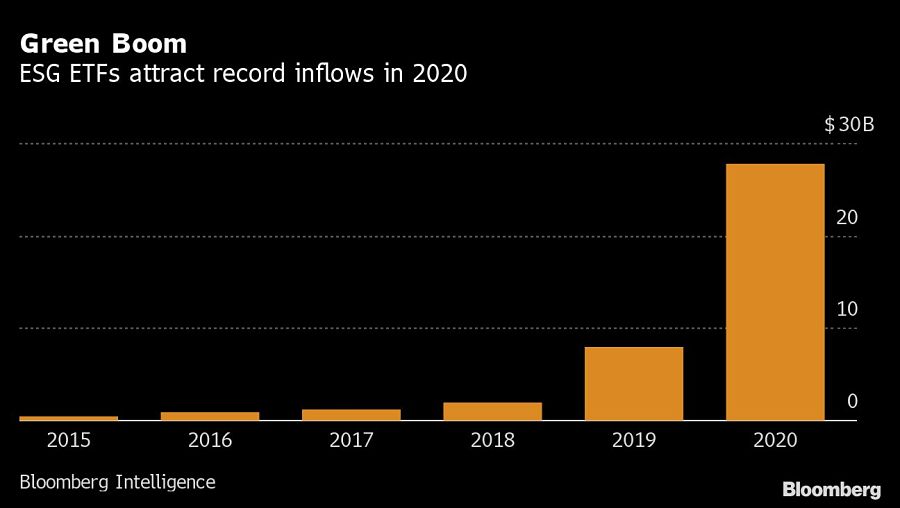

J.P. Morgan Asset Management is throwing its hat into the rapidly expanding universe of green funds.
The JPMorgan Carbon Transition U.S. Equity exchange-traded fund (JCTR) will begin trading on the New York Stock Exchange Thursday. The firm’s first U.S. ETF focused on environmental, social and governance standards will be passively managed and track a gauge that screens the Russell 1000 Index for companies seeking to reduce their carbon footprint.
“The carbon space is something that’s particularly interesting. It’s quantifiable, it’s something that everybody can kind of put their fingers on and understand,” said Bryon Lake, head of Americas ETF at J.P. Morgan Asset. “ESG, sustainable, is coming up more and more in the client conversations that we’re having, particularly sophisticated asset allocators, and so we’re really looking to meet that need with what we think is a super compelling investment proposition.”

As the world grapples with the coronavirus pandemic, devastating weather and racial unrest, U.S. ESG funds have lured a record $27.9 billion worth of inflows in 2020, according to Bloomberg Intelligence data. Those ETFs currently have about $61 billion in assets.
The new fund will evaluate Russell 1000 companies based on three main criteria: emissions, resource management and risk management. All told, JCTR whittles the Russell 1000 down to roughly 200 holdings, Lake said. Its constituents are selected from companies actively seeking to reduce their carbon footprint, according to Lake.
“Instead of just going through and deleting out the worst offenders, that gets you to only part of the answer. How companies are actually managing that transition is a much more interesting and compelling answer,” Lake said. “If it’s a heavily carbon-producing company, but they’re dramatically changing their behavior -- the emissions piece and the risk management piece -- that’s what we believe is more compelling.”

While industry statistics pointing to a succession crisis can cause alarm, advisor-owners should be free to consider a middle path between staying solo and catching the surging wave of M&A.

New joint research by T. Rowe Price, MIT, and Stanford University finds more diverse asset allocations among older participants.

With its asset pipeline bursting past $13 billion, Farther is looking to build more momentum with three new managing directors.

A Department of Labor proposal to scrap a regulatory provision under ERISA could create uncertainty for fiduciaries, the trade association argues.

"We continue to feel confident about our ability to capture 90%," LPL CEO Rich Steinmeier told analysts during the firm's 2nd quarter earnings call.
Orion's Tom Wilson on delivering coordinated, high-touch service in a world where returns alone no longer set you apart.
Barely a decade old, registered index-linked annuities have quickly surged in popularity, thanks to their unique blend of protection and growth potential—an appealing option for investors looking to chart a steadier course through today's choppy market waters, says Myles Lambert, Brighthouse Financial.
